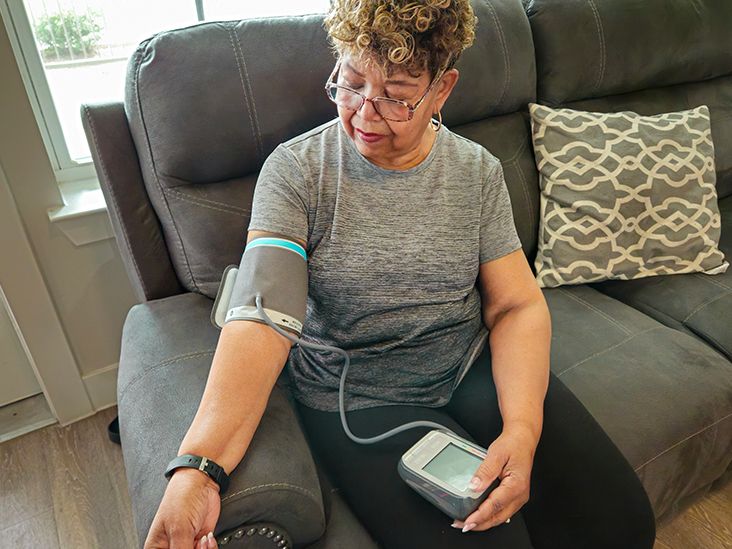For some people living with diabetes, blood sugars can drop or rise overnight and interrupt sleep. Difficulty sleeping can also affect your insulin. But there are things you can do to manage blood sugar at night and improve your sleep.
Diabetes doesn’t clock out at bedtime. Managing diabetes, no matter the type you live with, is more than a full-time job and involves juggling blood sugar checks, medication, exercise, and eating habits.
A lack of sleep can increase insulin resistance, which can raise your blood sugar. But you can also experience dangerously low blood sugars and not be able to recognize symptoms while asleep.
Here are a few bedtime to-dos that may help you feel more equipped to sleep more soundly through the night.
Regular blood sugar checks are a big part of managing your diabetes.
You may already be checking your blood sugar at different times of the day, including in the morning before eating, before all meals in general, and 1 to 2 hours after a meal.
If you start to notice that your blood sugar is often above or below target before bed, there are things you can do. Talk with your doctor about managing blood sugar at this time of day.
Here are some steps that may help lower blood sugar in the evening:
- Change the type, timing, or dose of medications or insulin.
- Eat dinner earlier.
- Decrease the amount of carbohydrates in your dinner meal or bedtime snack.
- Increase the amount of protein at your dinner meal or bedtime snack.
- Get out for a walk or do another activity after dinner.
On the other hand, if your blood sugar is too low before bed, you can try the following to stabilize it for when you’re asleep:
- Eat a balanced dinner.
- If you exercise close to bed, reduce your long-acting insulin before you go to sleep.
- Eat a carbohydrate snack before bed.
What is a good blood sugar level at night?
A common bedtime blood sugar target is80 to 180 milligrams per deciliter (mg/dL), but your personal goal may be different. This can vary based on your health and diabetes care plan, so always make sure to follow your healthcare team’s recommendations.
Testing at bedtime for at least 1 or 2 weeks can allow you to see patterns that you can discuss with your diabetes care team.
Understand ‘normal’ blood sugar levels
Your target blood sugar levels may vary based on time of day or night, and many other factors.
Always consult your diabetes and healthcare team about what specific targets you may want for blood sugars, and how you can work toward those goals.
When you live with type 1 or type 2 diabetes, you might experience something that experts named the “dawn phenomenon” or the “dawn effect.”
This means your blood sugar might spike early in the morning, often between 2 a.m. and 8 a.m. It may be high even before you eat anything.
On the other hand, you can also experience something called nocturnal hypoglycemia, in which your blood sugar levels drop below
For this reason, it can be helpful to first find out more about what your blood sugar does overnight.
Insulin pumps may help keep blood sugar stable overnight. You can fine-tune your insulin dose delivery with an insulin pump to match the rise in blood sugar due to the dawn phenomenon.
If you take long-acting insulin or medications in the evening and your blood sugar is high in the morning, it’s possible that your dose isn’t enough to get you through the night. Talk with your doctor about how to adjust the dose.
Avoid caffeine if it’s a few hours before bedtime. Sources of caffeine include coffee, some teas, chocolate, and soda. Caffeinated foods and drinks are stimulants and can keep you awake.
For some people, having caffeine anytime in the afternoon makes it hard to sleep later. Pay attention to how caffeine affects you. Research also suggests caffeine may raise your blood sugar.
Also, limit alcohol intake, especially if you find it affects your sleep. Note that alcohol can also raise or lower blood sugar levels.
On the other hand, combining it with diabetes medications like insulin or sulfonylureas can actually lower your blood sugar too much.
Exercise helps your body use insulin more efficiently. Activity can also be a way to reduce stress and settle your mind before bed.
Exercising, such as taking a walk, too close to bedtime, may impact how fast you fall asleep. However, this isn’t the case for everyone. Some people sleep fine after a workout before bed.
On the other hand, exercising in the evening may help keep your blood sugar more stable overnight. Just measure your blood sugar before you go to sleep to ensure it doesn’t go too low. Get to know your body and find what works best for you.
To optimize your ability to fall asleep and stay asleep, it’s a good idea to have a quiet, cool, dark, and comfortable room.
Set the thermostat between 60°F (15.6°C) and 67°F (19.4°C), which is the optimal temperature for sleep.
Lighting matters. Our bodies produce a hormone called melatonin, which helps you sleep. Light slows melatonin production. The more light exposure you have, the less melatonin you produce, and the harder it can be to fall asleep.
Dim the lights as it gets closer to bedtime. Close the shades and curtains in your bedroom so that the rising sun won’t wake you up in the morning. Consider installing room darkening or blackout curtains.
Noise can disturb your sleep, too. Move your cellphone to another room or put it in a drawer so that incoming texts and calls don’t wake you up. If you’re sensitive to noise, get a fan or white noise machine, or use earplugs to block out any unwanted sounds.
Many people in the United States do not get enough sleep. Experts recommend that adults get at least
Many things can affect your sleep.
Nerve pain, frequent thirst, the need to urinate, and hunger can all keep you awake. If you have any of those concerns, it’s a good idea to talk with your doctor.
One way to maximize your sleep hours is to get into a bedtime routine.
Just before bed, do something to relax your body and quiet your mind to prepare for sleep. Try the following:
- Take a warm bath or shower.
- Do some gentle yoga or stretching.
- Read a book.
- Listen to relaxing music.
- Try a guided meditation.
Keep the lights low. Limit your screen time. Screens emit a type of blue light that can stimulate your brain and make it harder to fall asleep.
If you can’t fall asleep right away, leave the room and read or do another quiet activity for 15 minutes, then climb back into bed and try again.
Learn more about bedtime routines
You can try many ways to establish or change your bedtime routine. Find some ideas to help you in your life and routine.
When you live with diabetes, what you do before bed can directly affect your blood sugar levels at night. These may become too high or too low. In addition, lack of sleep itself can increase insulin resistance and affect blood sugar levels.
But, developing certain habits in the hours before bedtime can help you improve sleep and blood sugar regulation overnight.
Part of this involves monitoring and managing your blood sugar, but there are also things you can do to improve your sleep, like avoiding alcohol before bed and engaging in relaxing activities.
SOURCES:










